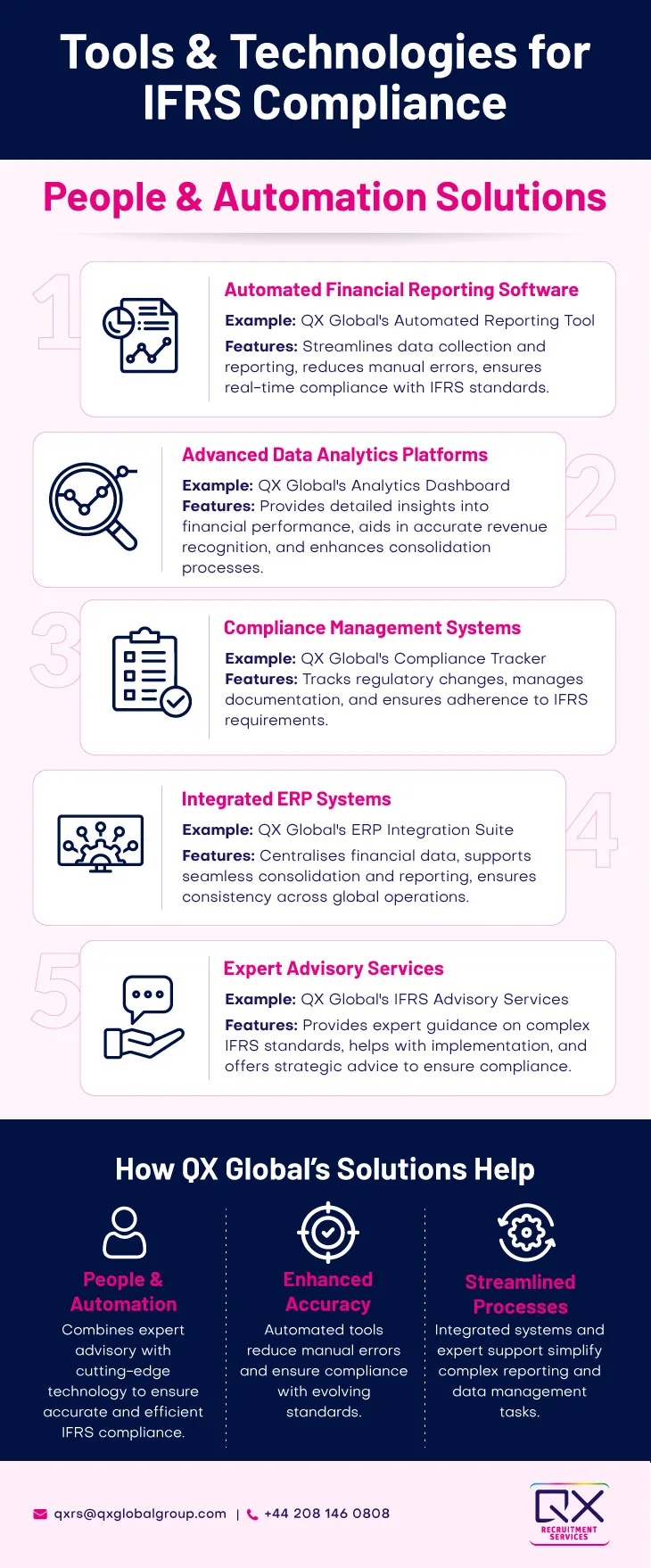Topics: IFRS 10, IFRS 16, IFRS 18, IFRS compliance, outsourcing solutions
Posted on September 23, 2024
Written By Abishek Balakumar

As a marketer who has spent considerable time researching the various complexities of IFRS, I have witnessed how the rules pose great challenges to businesses operating in more than one country. In the UK itself, 79% of CFOs pointed out their concerns over meeting compliance standards due to ever-changing financial regulations.
But there is an answer that is more and more in demand-outsource. Think of the possibility of moving IFRS compliance and outsourcing burden from your internal team to free them up for strategy instead of fighting with all those financial statements and tax codes. Thanks to outsourcing, many UK companies discovered an invaluable resource, optimised their processes, and minimised compliance costs. Let’s learn more about the main risks of IFRS and find out how outsourcing can help you maintain competition at a further level.
Any business operating in more than one country must adhere to IFRS. The standard provides a harmonised framework that would ensure transparency and comparability between different enterprises’ financial reporting. In the absence of adherence, enterprises risk losing alignment with regulatory bodies and investors.
However, it is pretty tricky to comply with the IFRS standards. For instance, although setting requirements for revenue from contracts with customers may seem easy, it is one of the most thorny issues for multi-jurisdictional companies. Maybe, different countries have different understandings of contract revenues and therefore enormous differences make their case in how businesses log their accounts. According to a survey of UK financial professionals, cross-border compliance is one of the toughest problems dealing with financial reporting in 67%.
Cross-border transactions make financial reporting more complex because they may involve several currencies, tax regimes, and regulatory requirements. Moreover, IFRS 10 increases this complexity as the business consolidates its financial statements into one entity. In such a scenario, such a requirement is likely to blur the profitability of each region in the business, thus complicating the job for decision-makers to decide where to invest or make cuts.
Actually, over 80% of multi-national firms in the UK have reported that navigating compliance in other countries significantly increases the firm’s operational costs. IFRS hopes to streamline these processes, although, without specialist knowledge, many companies find it impossible to stay compliant across regions.
IFRS 16 is another tough requirement; this relates to accounting for leases. Now companies are obliged to disclose nearly any type of lease agreement on their balance sheets, a requirement that has impacted businesses considerably, mostly where the leasing of assets like equipment, office space, or vehicles is widespread.
Indeed, UK companies have an average increase of 15-20% for reported liabilities because of IFRS 16, and that could, therefore influence balance sheet ratios such as debt-to-equity. Such change can quickly impact the business with a quest to raise finance or loans because financial health indicator will give out weaker signs while nothing fundamental changes in operations.
From now on, IFRS 18 is expected to supplant IAS 1 in 2027. Although the new standard is not an altered recognition or valuation of assets and liabilities, it will call for a reordering of the profit or loss statement. The disclosure requirements also would be much more elaborate, potentially constituting a full-scale revamping in how entities present their financial results.
This is further compounded for multinational companies since advanced preparation will determine a smooth shift. Based on the survey carried out in the UK, 83% of firms have admitted that they are not ready to implement IFRS 18 yet, thus more support will be required closer to the deadline.
In light of these reasonable loads on the business world, it does not come as a surprise that companies consider outsourcing. In delegation, here, can businesses create space within internal teams while ensuring the meeting of needs with precision and efficiency through the delegation of IFRS compliance responsibilities to experts.
Outsourcing allows firms to keep abreast of recent knowledge regarding complex concepts like IFRS 10, IFRS 15, and the new IFRS 18. Many UK-based companies have reported a decrease of 25-30% in the compliance cost arising from the outsourcing of their financial reporting. Moreover, outsourcing frees up the critical time and resources that the teams within the company can utilise to focus on more strategic endeavours rather than getting bogged down into financial details.

As the IFRS continues to advance, multinational companies will face more strictness. However, outsourcing remains a common-sense solution that companies can resort to in their quest towards these complexities. A company using external expertise ensures that the changing standards are met while in the process saving on costs due to reduced operation time. Outsourcing compliance and admin support services, therefore, can be the difference in ensuring that your business does not become overwhelmed with IFRS problems and stays competitive as regulatory issues change.
Originally published Sep 23, 2024 11:09:27, updated Nov 05 2024
Topics: IFRS 10, IFRS 16, IFRS 18, IFRS compliance, outsourcing solutions